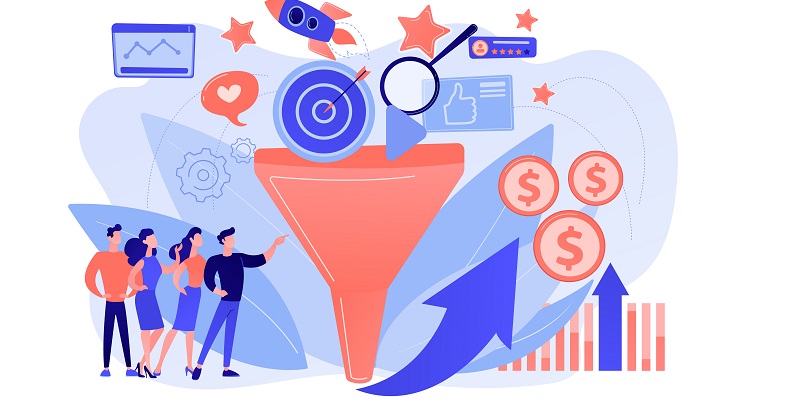In today’s competitive business landscape, converting leads into customers and optimizing return on investment (ROI) are essential for success. To achieve these goals, it is crucial for business owners to understand and effectively utilize the digital marketing funnel. This article will dive into the intricacies of the digital marketing funnel and explain how it can be a game-changer for businesses in terms of lead conversion and ROI optimization.
Definition of a Digital Marketing Funnel
A digital marketing funnel acts as a framework that guides potential customers through a series of steps, ultimately leading them from initial awareness to the final purchase. By understanding these stages, businesses can create a well-defined path that nurtures potential customers and ultimately converts them into paying customers.
Creating a seamless and personalized experience
When it comes to moving potential customers through the funnel, the goal is to create a seamless and personalized experience. By providing valuable content, addressing pain points, and establishing trust, businesses can guide potential customers along the funnel more efficiently. Crafting persuasive messages, such as limited-time discounts, bundled deals, or exclusive access to premium features, can create a sense of urgency and added value that guides them towards the final conversion step with confidence.
Mapping the customer journey
Understanding the stages of the digital marketing funnel allows businesses to map out the customer journey effectively. The funnel typically consists of four main stages: awareness, consideration, decision, and advocacy. By focusing on each stage, businesses can allocate resources more efficiently and get more value from their marketing efforts.
In the awareness stage, potential customers become aware of your brand or product. This is an opportunity to create initial interest and build brand recognition. Effective tactics in this stage include content marketing, social media engagement, and search engine optimization.
The consideration stage is where potential customers start evaluating their options. Businesses must provide valuable information through case studies, comparisons, and testimonials to establish credibility and convince potential customers of the value of their offerings.
At the decision stage, potential customers are ready to make a purchase. This is the perfect time to leverage persuasive techniques, such as discounts and incentives, to push potential customers towards converting. Once a customer makes a purchase, the advocacy stage comes into play. A well-thought-out post-purchase strategy can turn one-time buyers into loyal customers and brand advocates. By providing exceptional customer service, offering loyalty rewards, and encouraging customer reviews, businesses can foster long-term relationships and create a strong customer base.
Creating a Roadmap
Creating a digital marketing funnel is like crafting a roadmap to guide potential customers from discovering your brand to making a purchase. It involves aligning the different stages of the funnel with specific marketing strategies, tactics, and channels. At the top of the funnel, businesses should focus on generating awareness through captivating content on various platforms, tapping into influencer marketing, and optimizing search engine visibility. As potential customers progress through the funnel, the strategies should shift towards providing in-depth product information, delivering personalized messages, and offering incentives to encourage conversion.
Content as a purposeful tool within the funnel
“Content is king,” as the old saying goes. However, it’s essential that your content serves a purpose within your funnel. Each piece of content should align with the different stages of the funnel and effectively engage potential customers. From attention-grabbing blog articles and informative videos to gripping social media posts and comprehensive product pages, every piece of content should guide potential customers further along the funnel.
Tailoring marketing strategies for each stage
The digital marketing funnel is crucial because it allows businesses to tailor their marketing strategies for each stage. By understanding the unique needs and motivations of potential customers at each stage, businesses can customize their messages, channels, and tactics accordingly. It’s all about delivering the right message at the right time through the right channel to the right audience.
In conclusion, understanding and leveraging the digital marketing funnel is essential for businesses of all sizes. By utilizing this framework, businesses can not only convert leads into customers more effectively but also optimize their return on investment. From crafting persuasive messages to mapping the customer journey, the digital marketing funnel offers a roadmap for success in today’s competitive business landscape. So, take the time to understand the funnel, optimize your marketing strategies for each stage, and watch your business thrive.

